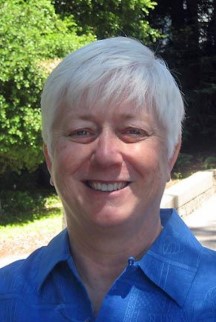It’s time to start putting some names and faces to all the work that goes into the Apache Cassandra project. The community powers everything we do. Without them, we wouldn’t be building on such a stable release, seeing so many features being merged and in development, and you wouldn’t be able to read this website right now!
About Our Contributor
 Our first contributor interview is with Lorina Poland, who lives in California. Lorina’s first job out of college was writing programs in Fortran for Chevron R&D that we used in fieldwork in oilfields. She went on to become an Engineering Officer in the U.S. Air Force until retiring in 2007. Because military service wasn’t demanding enough, she spent ten years teaching high school kids math and science. In her current role, she works full-time as a lead technical writer for DataStax.
Our first contributor interview is with Lorina Poland, who lives in California. Lorina’s first job out of college was writing programs in Fortran for Chevron R&D that we used in fieldwork in oilfields. She went on to become an Engineering Officer in the U.S. Air Force until retiring in 2007. Because military service wasn’t demanding enough, she spent ten years teaching high school kids math and science. In her current role, she works full-time as a lead technical writer for DataStax.
As a committer for Apache Cassandra, she tends to focus on documentation. Her main professional interests are better maintaining and publishing tools for documentation, and recently, APIs for interacting with Apache Cassandra.
Contributor Questions
Question: What are you currently working on, or have worked on, in the past for the Apache Cassandra project?
Answer: My last big project was converting the Apache Cassandra documentation to AsciiDoc, to facilitate easier maintenance and contributions. This was a revamp of the documentation for the 4.0 general release. The project involved a conversion from reStructuredText and Sphinx to Asciidoc and Antora. I was also an active member of the small team that redesigned the Apache Cassandra website.
Question: What’s been the most rewarding aspect of being part of the Apache Cassandra community?
Answer: Working with others who see value in open-source software. Open source allows so many people to learn to use complex software. Back when only proprietary software was available, it was hard to gain experience. Without experience, you couldn’t get a job, so it was a Catch-22. I’m grateful that open source has changed that for everyone. Also, the people on the project are pretty awesome, too!
Question: For someone reading this and can help, what types of contributions or support do you think the Cassandra community needs, or is there anything they can do to help you?
Answer: I view the project from the narrow perspective of documentation—and there are always opportunities to help with docs. I would encourage anyone to contribute to documentation as it teaches you a lot about the software. It forces you to think about explaining complex technologies and can be very rewarding. One thing to bear in mind, you will need to be open to having your contributions reviewed by the documentation team and someone like me. The goal is to make sure we write documentation in the most helpful way possible, and that means collaborating with others
Question: What areas of interest and fields are you passionate about in your career?
Answer: I’m really always interested in learning new things. Right now, I’m quite heavily involved in another open-source project that provides REST, GraphQL, Document, and gRPC APIs to interact with Apache Cassandra. I’m also very passionate about testing software to see how it works for users.
Question: How were you introduced to open source software development, and what was your first contribution to an open source project?
Answer: I started working on documentation in my day job, but for me, working on Apache Cassandra was a way to give the open source software (OSS) project some great documentation, too.
Question: What advice would you give to someone getting started with open source projects?
Answer: Pay attention to the user and developer mailing lists and learn from them. You can join the lists for Apache Cassandra here. Find a topic that needs some work, and connect with anyone working in that area. I also find studying testing for software is an excellent way to learn and gain the knowledge you need to contribute.
Question: What do you like to do with your spare time when you’re not volunteering on the project?
Answer: I read a lot, both fiction (sci-fi, fantasy, and mysteries) and non-fiction (history and current events). I enjoy taking my dog for walks, maintaining my home computer systems (FreeNAS with plugins for Plex, etc.), and I put together whimsical jigsaw puzzles.














